
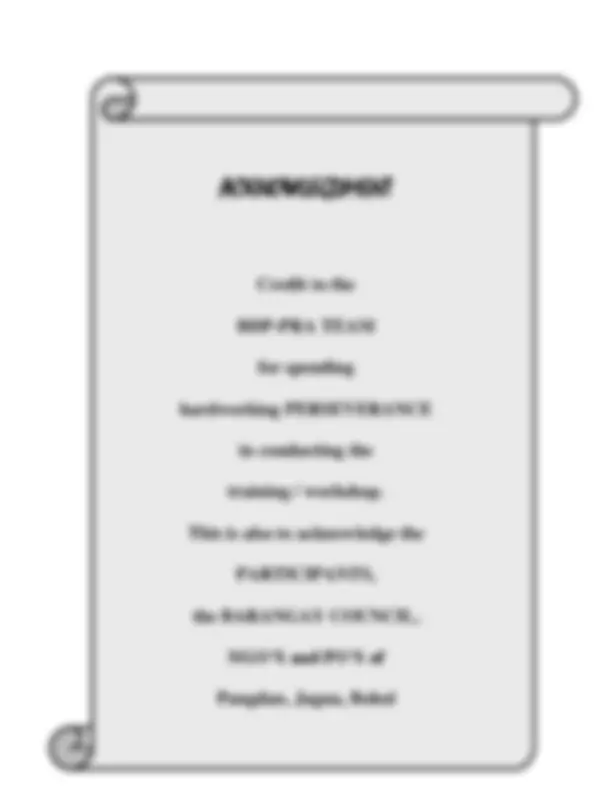
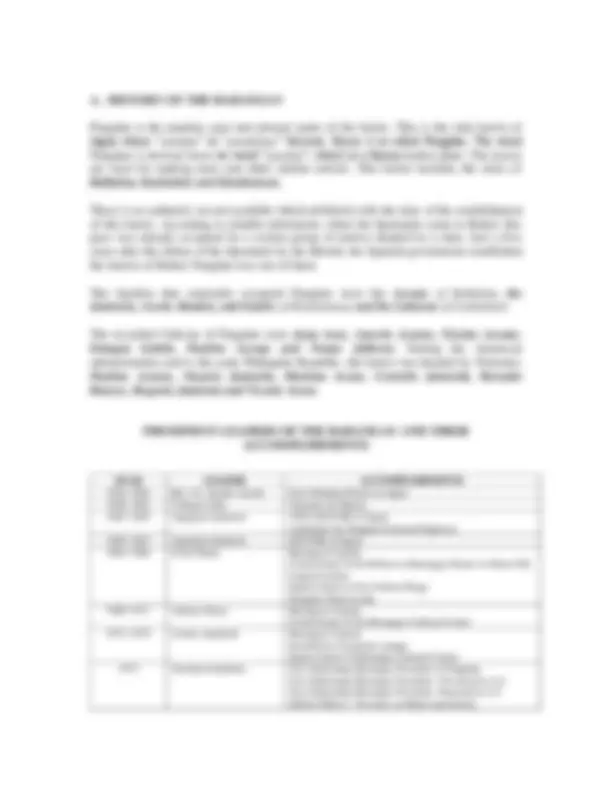
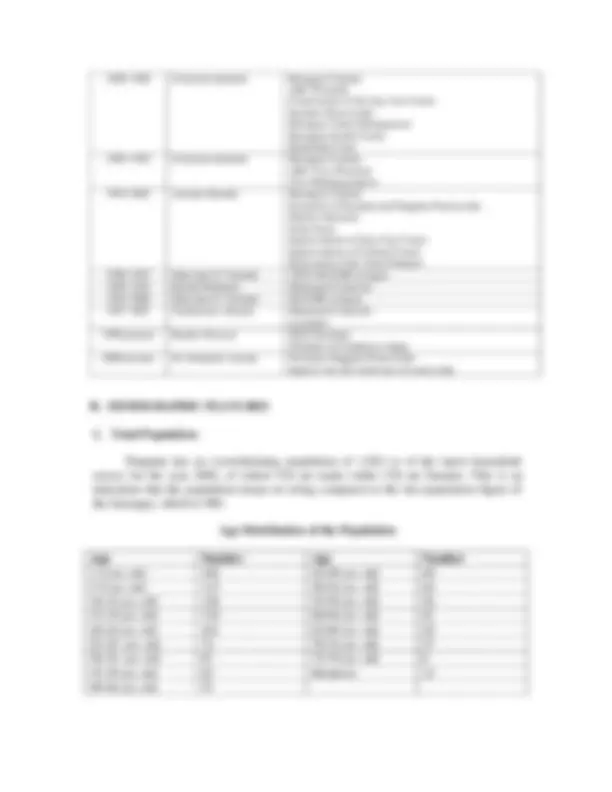

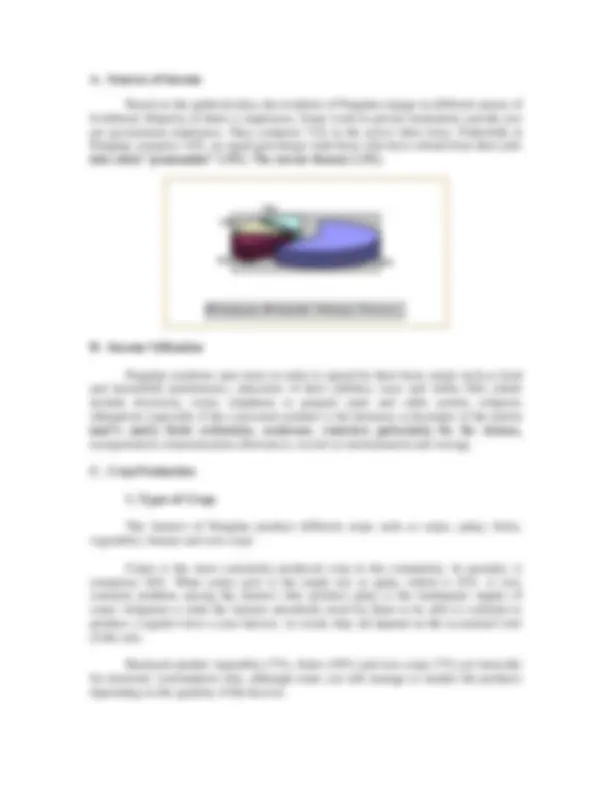
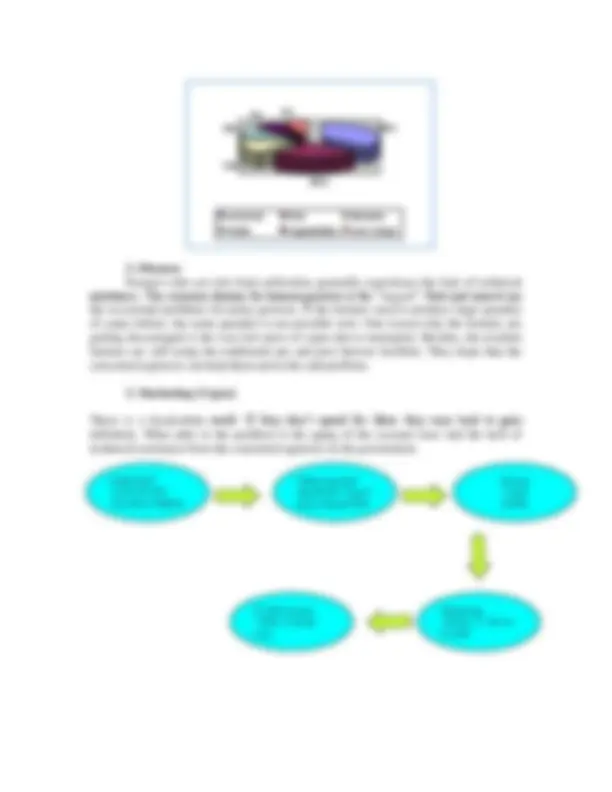
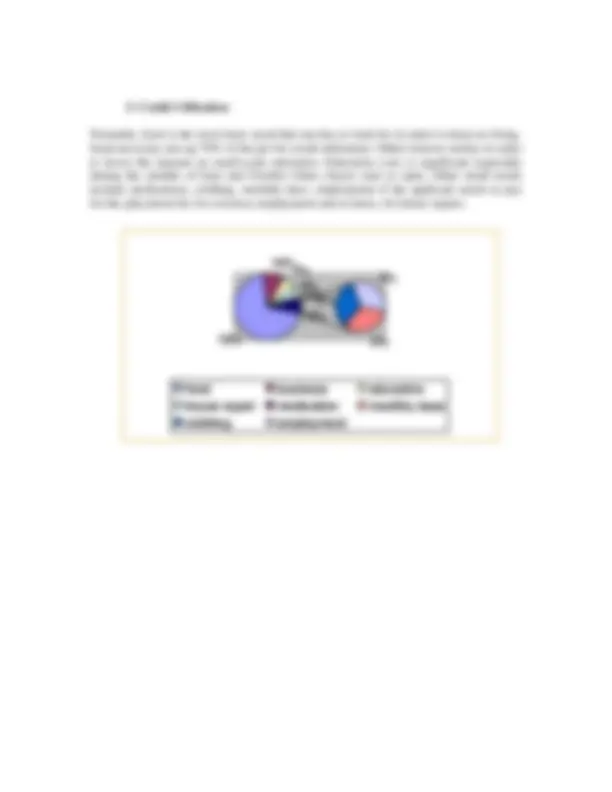
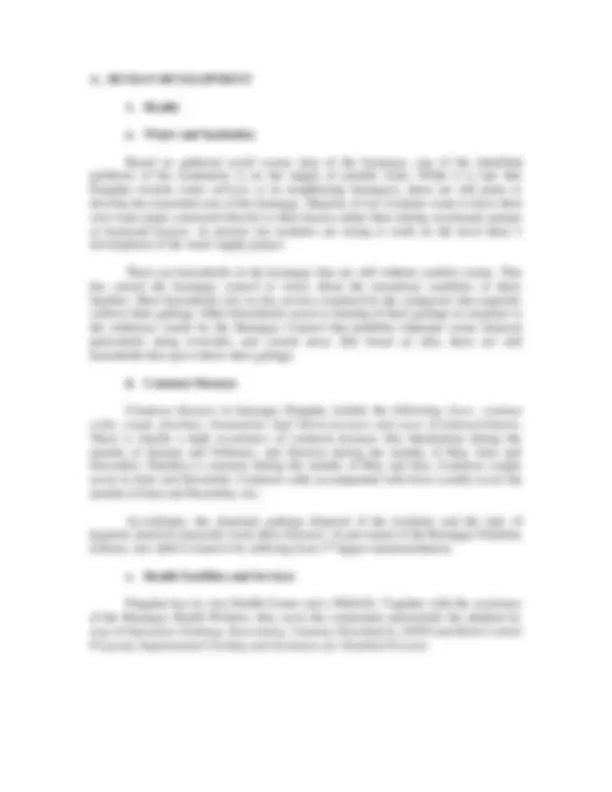
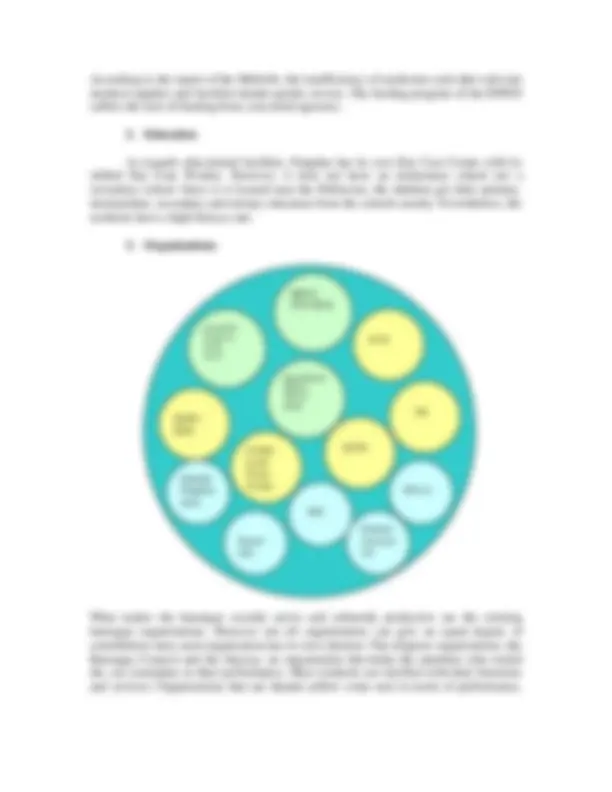
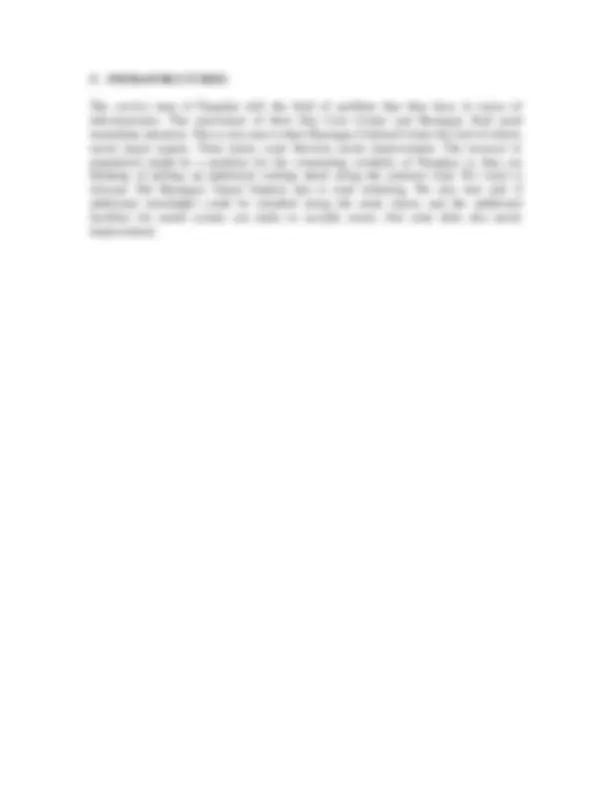
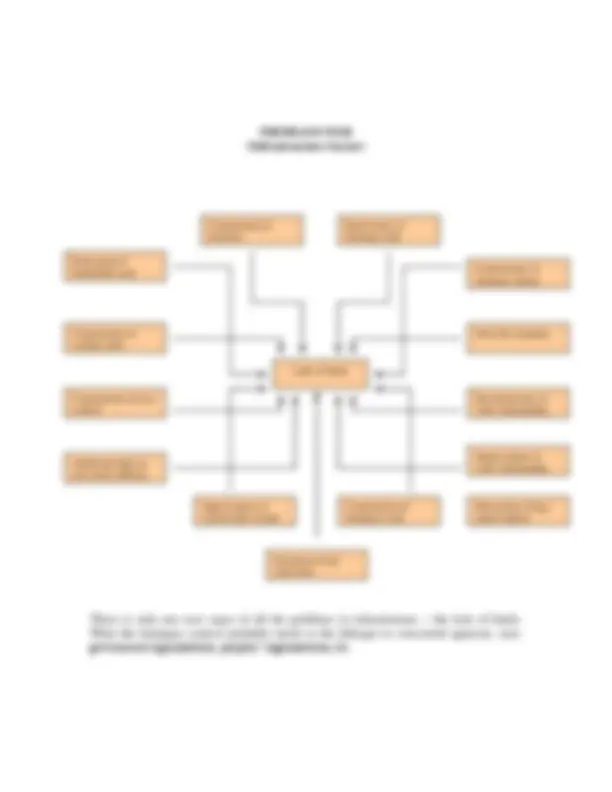
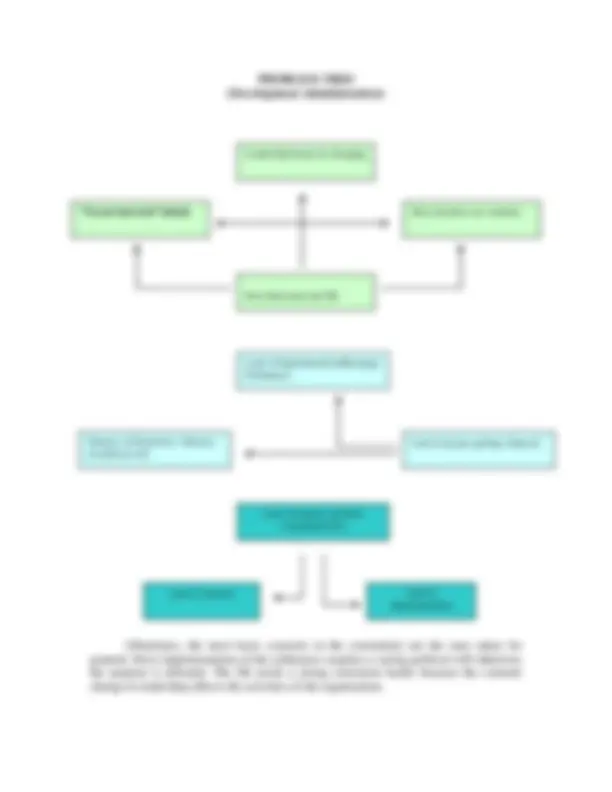
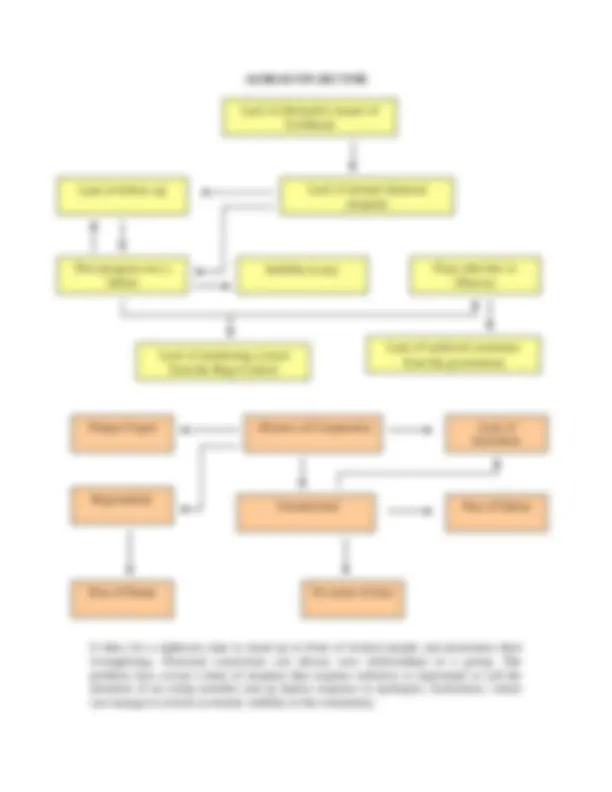
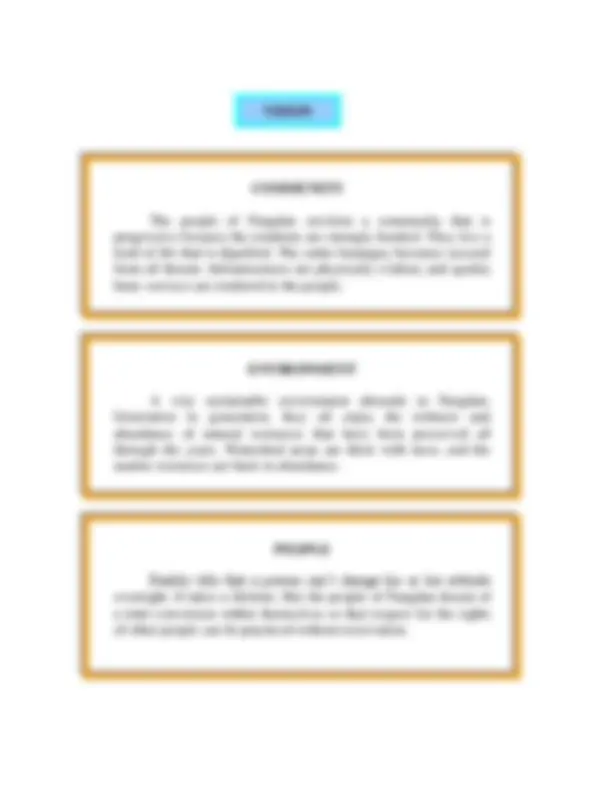
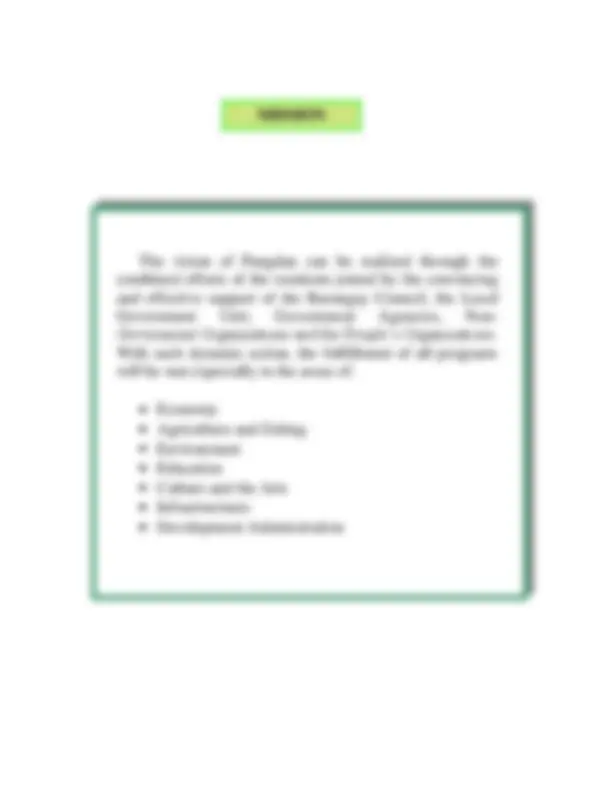
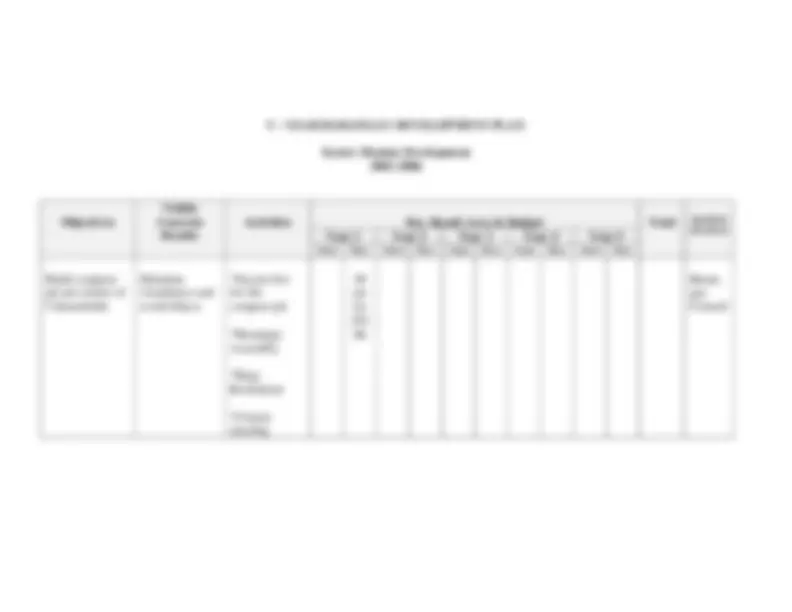
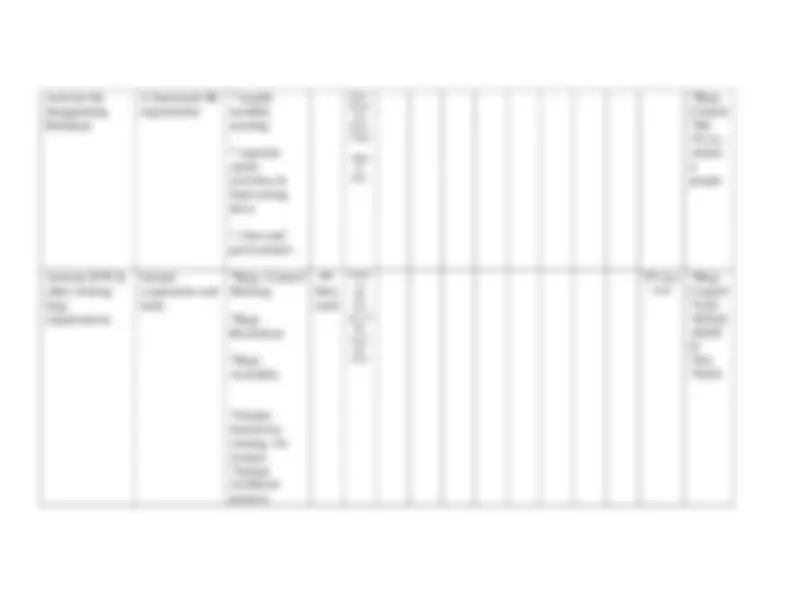
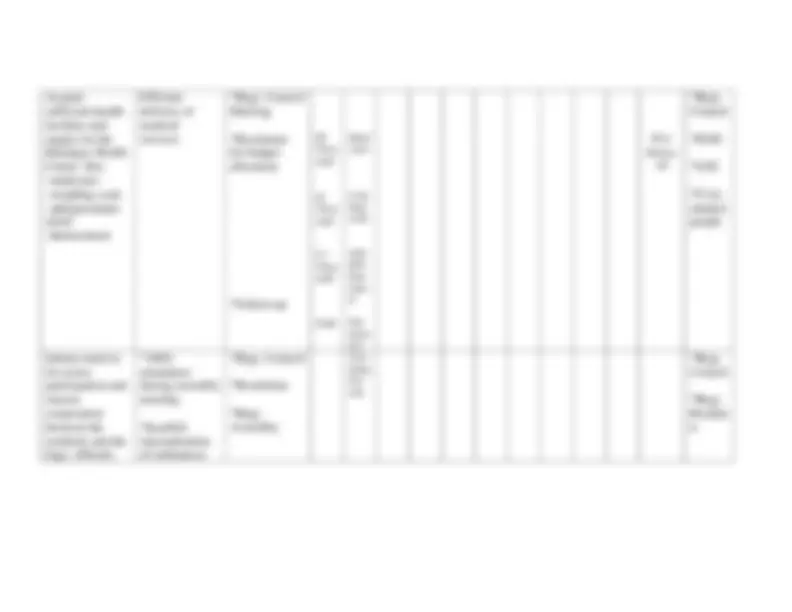
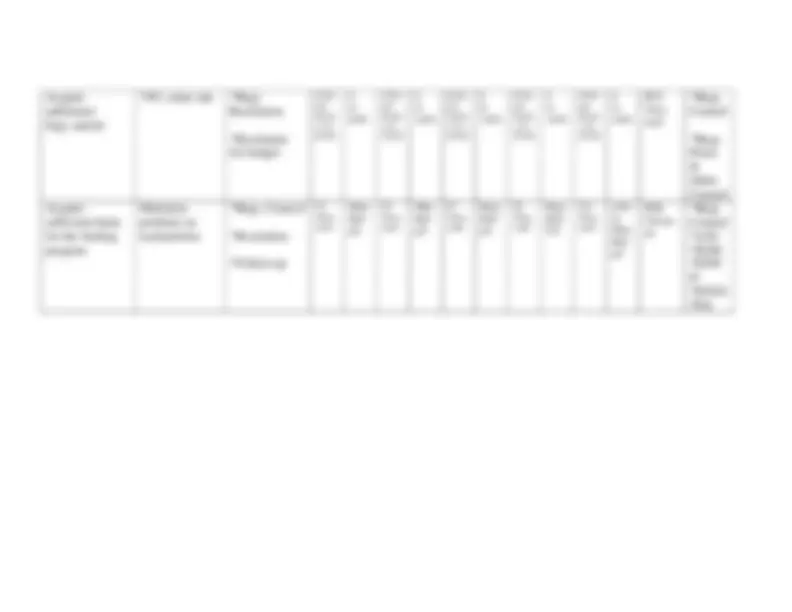
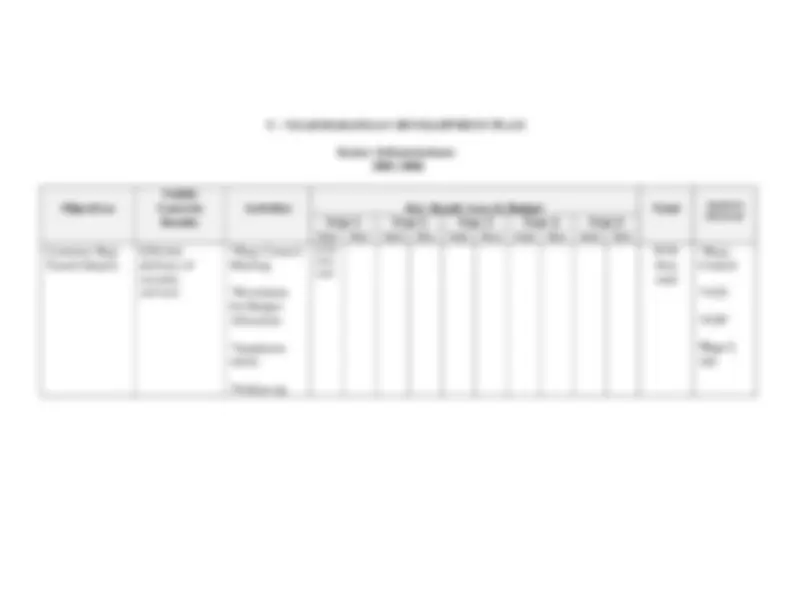
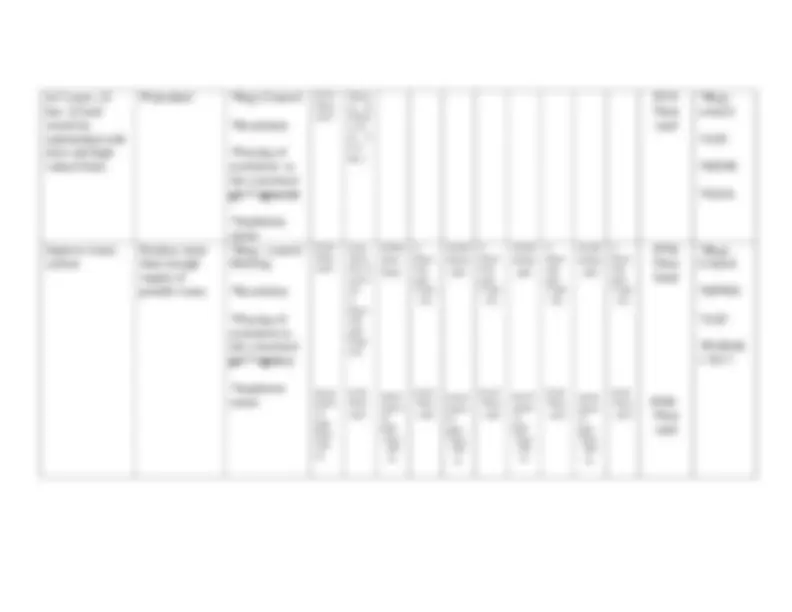
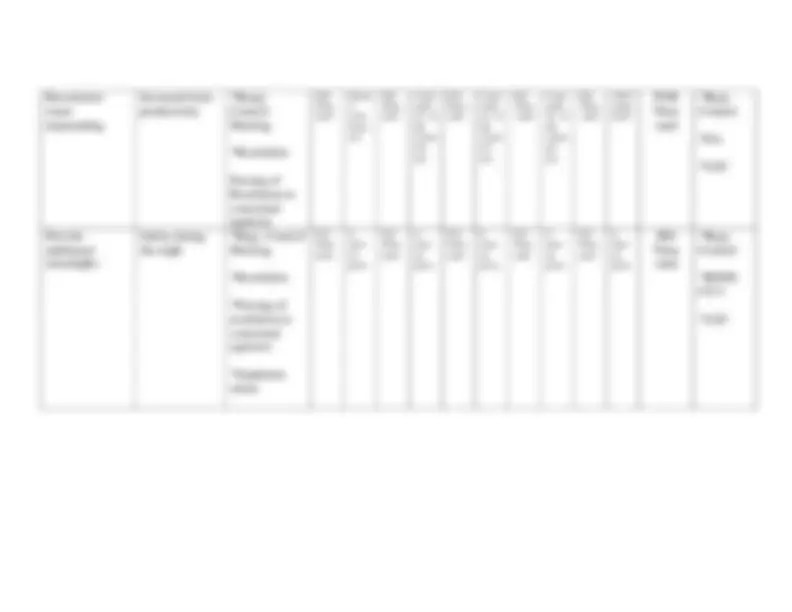
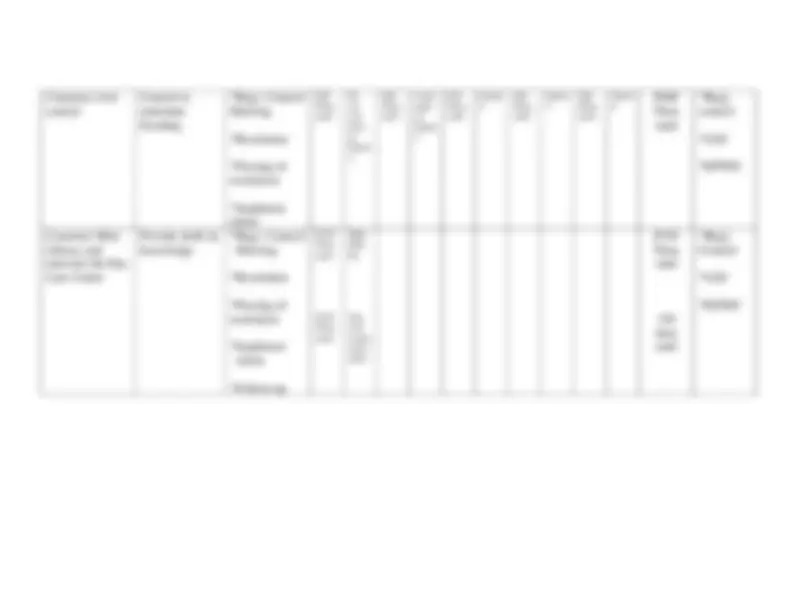
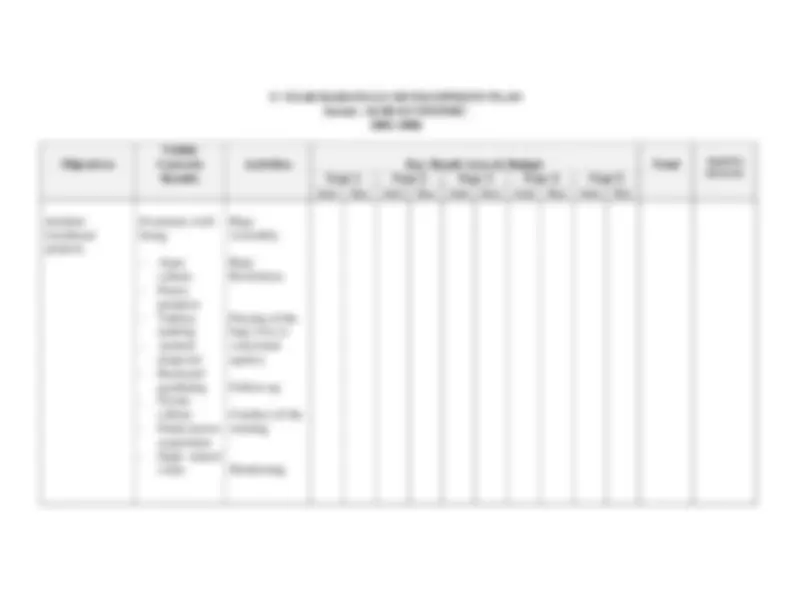
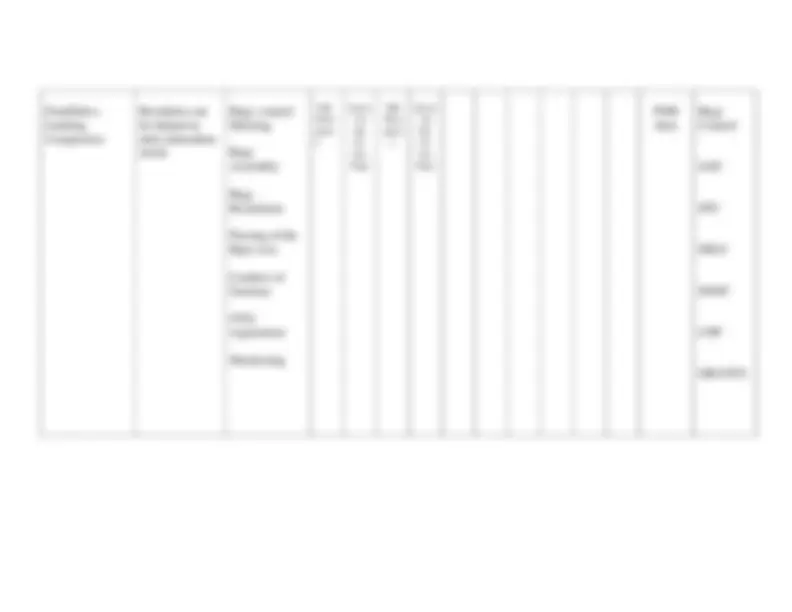
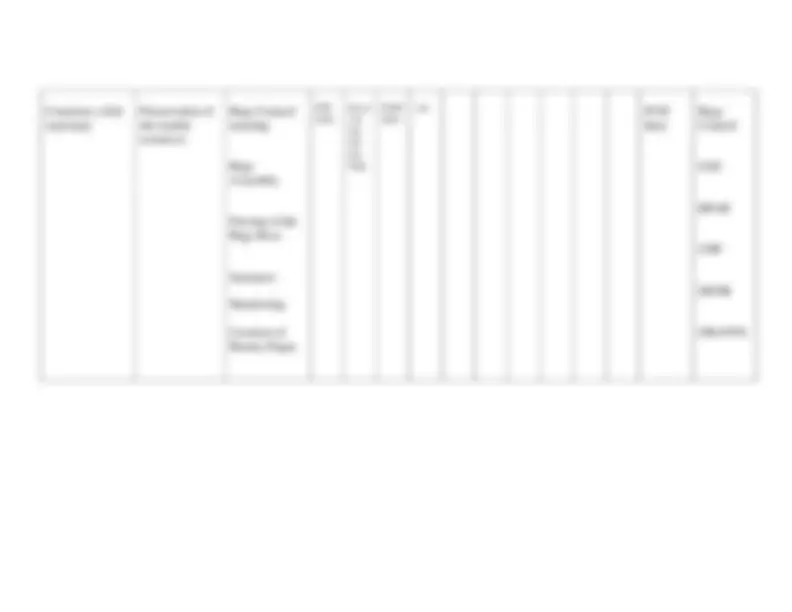














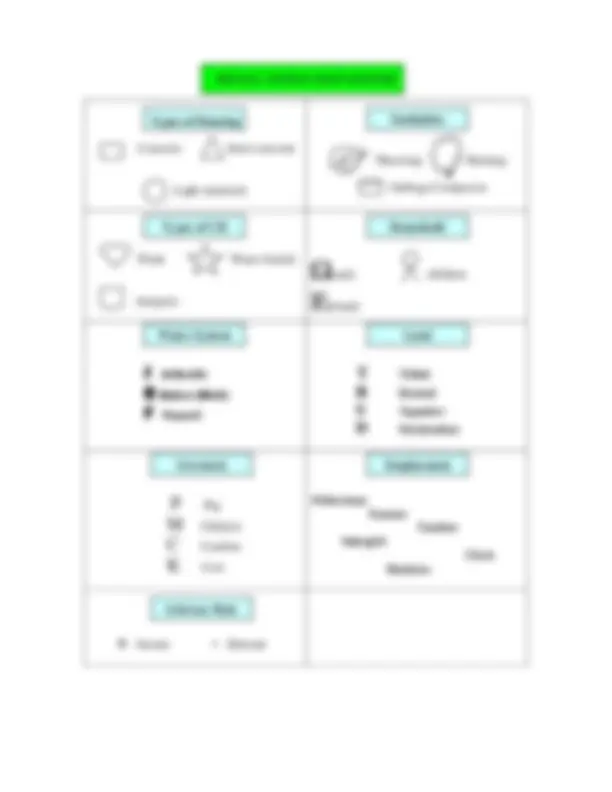
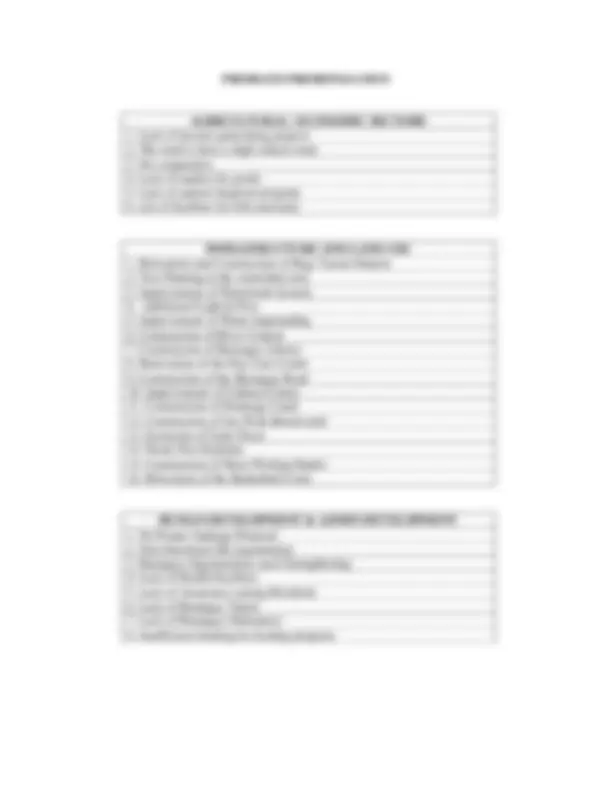
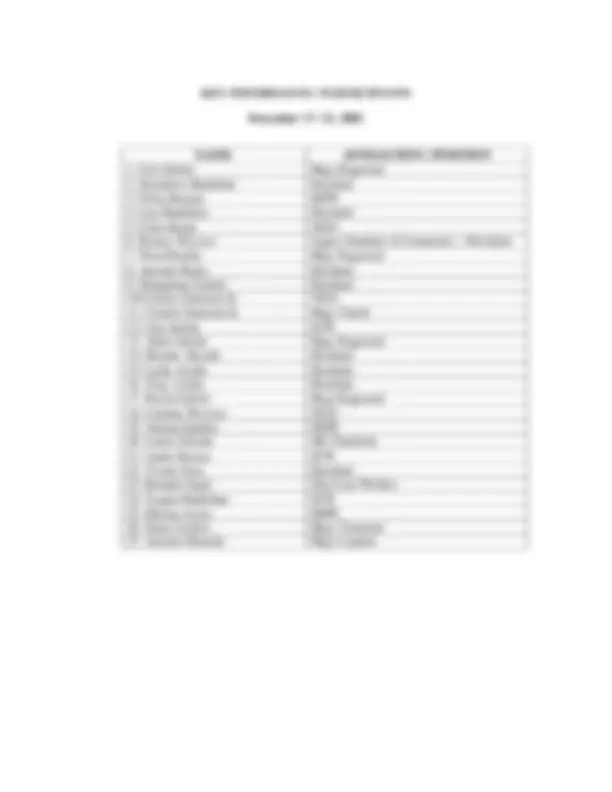

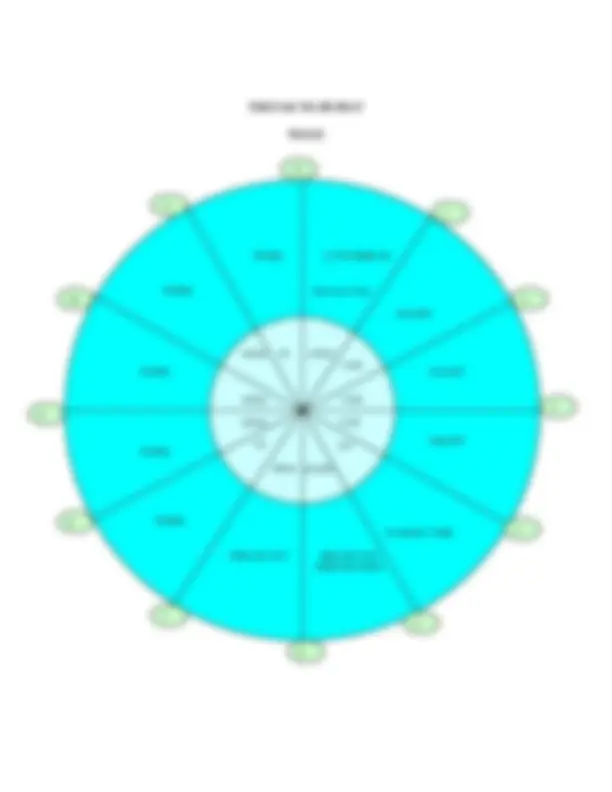
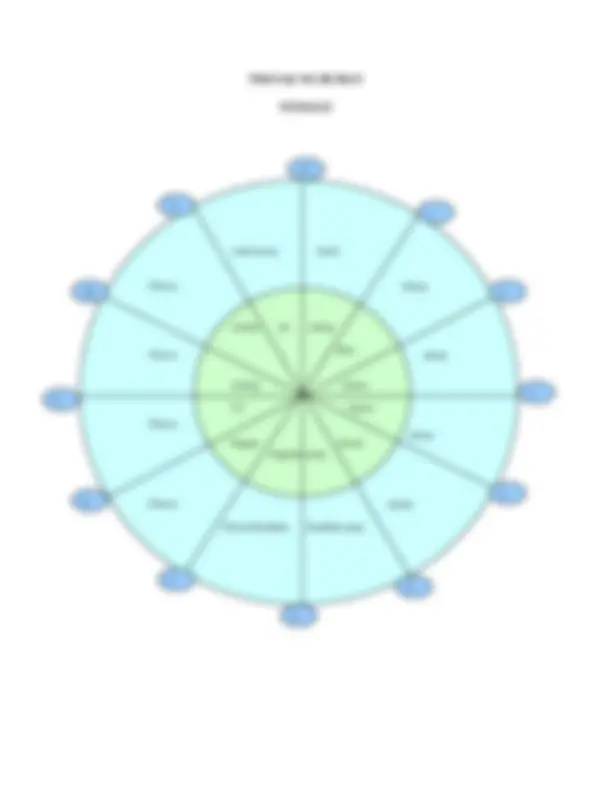
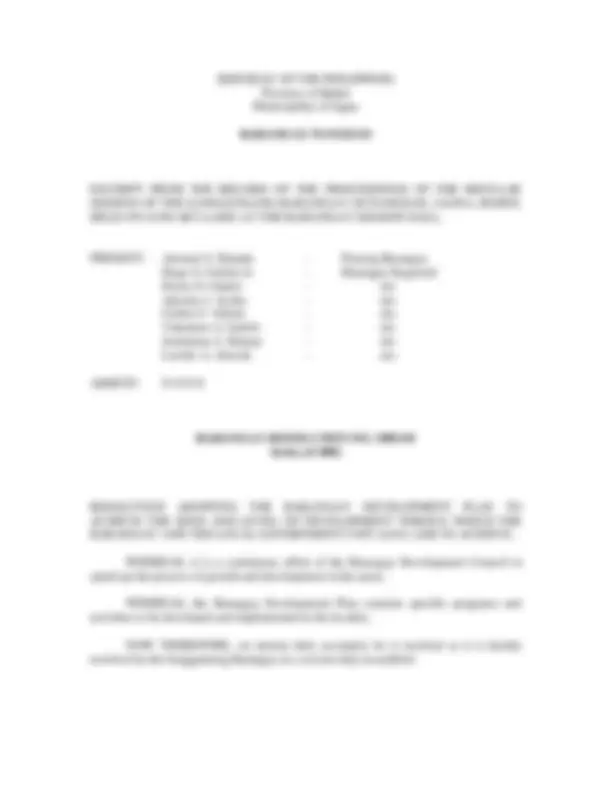
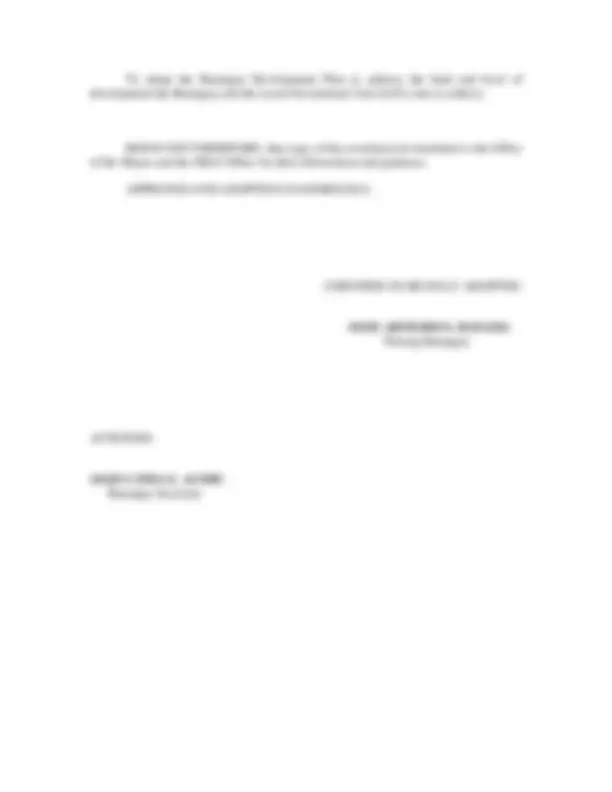














































Study with the several resources on Docsity

Earn points by helping other students or get them with a premium plan


Prepare for your exams
Study with the several resources on Docsity

Earn points to download
Earn points by helping other students or get them with a premium plan
Community
Ask the community for help and clear up your study doubts
Discover the best universities in your country according to Docsity users
Free resources
Download our free guides on studying techniques, anxiety management strategies, and thesis advice from Docsity tutors
It is an narrative repost. Hope it helps ha
Typology: Schemes and Mind Maps
1 / 242

This page cannot be seen from the preview
Don't miss anything!





























































































Province of Bohol Municipality of Jagna
Barangay Pangdan
We are lucky enough for having obtained the training on Barangay Development Planning through Participatory Rural Appraisal (BDP-PRA). But with this, comes the challenge and the responsibility on our part that is to live up to the expectations of the people. This is also the beginning of another struggle that, at times gets even more challenging when coupled with disappointments. But this should not be a barrier because the knowledge and skills we acquired will enable us to conquer all problems.
My constant prayers will be for the success that we rightly deserve.
(Sgd.) ARTEMIO S. RANADA Punong Barangay
Pangdan is the popular, past and present name of the barrio. This is the only barrio of Jagna where “ pandan ” or “ pandamus ” thrivess. Hence it is called Pangdan. The word Pangdan is derived from the word “ pandan ”, which is a thorny-leafed plant. The leaves are used for making mats and other similar articles. This barrio includes the sitios of Balbalan, Kanhabol, and Kinalumsan****.
There is no authentic record available which definitely tells the date of the establishment of this barrio. According to reliable informants, when the Spaniards came to Bohol, this pace was already occupied by a certain group of natives headed by a datu. Just a few years after the defeat of the Spaniards by the British, the Spanish government established the barrios of Bohol. Pangdan was one of them.
The families that originally occupied Pangdan were the Acenas of Balbalan , the Jamisola, Acedo, Ranara, and Galolo of Kinalumsan , and the Lakaran of Canhabuol.
The recorded Cabezas of Pangdan were Juan Acas, Anecito Acenas, Nicolas Acenas, Dumpas Galolo, Paulino Acenas and Tomas Jalloren. During the American administration and to the early Philippine Republic, the barrio was headed by Tenientes Paulino Acenas, Nazario Jamisola, Mariano Acaso, Cornelio Jamisola, Bernabe Rances, Hegenio Jamisola and Vicente Acaso.
YEAR LEADER ACCOMPLISHMENTS 1956-1962 Rev. Fr. Jacinto Acedo First Ordained Priest in Jagna 1956-1962 Urbano Llido Teniente del Barrio 1963-1964 Agripino Jamisola VICE MAYOR of Jagna Asphalted the Pangdan National Highway 1965-1967 Agripino Jamisola MAYOR of Jagna 1964-1968 Celso Ranis Barangay Captain Construction of the Birhen sa Barangay Shrine in Ilihan Hill Irrigation Dam Improvement of the Cultural Stage Pangdan Waterworks 1968-1971 Adrian Abrau Barangay Captain Construction of the Barangay Cultural Center 1972-1979 Ursino Apalisok Barangay Captain Installation of jetmatic pumps Improvement of Barangay Cultural Center 1973 German Guidaben First Kabataang Barangay President of Pangdan First Kabataang Barangay President- Provincial Level First Kabataang Barangay President- Regional Level DOLE Officer – Province of Bohol (presently)
1980-1988 Cristituto Jamisola Barangay Captain ABC President Construction of the Day Care Center Karahan Waterworks Barangay Tanod Headquarters Barangay Health Center Basketball Court 1989-1994 Cristituto Jamisola Barangay Captain ABC Vice-President Tree Planting projects 1994-2002 Artemio Ranada Barangay Captain Extension of Karahan and Pangdan Waterworks Marine Sanctuary Solar Dryer Improvements of Day Care Center Improvements of Cultural Center Renovation of the Tanod Outpost 1990-1993 Marciana O. Tsurumi VICE MAYOR of Jagna 1990-1993 Roland Ballentos Municipal Councilor 1994-2000 Marciann O. Tsurumi MAYOR of Jagna 1997-2001 Temistocles Abcede Municipal Councilor Lot donor 1998-present Romeo Wycoco NGO President Chamber of Commerce-Jagna 2000-present Dr. Enriquito Acenas President-Pangdan Waterworks Improve the bill collection of waterworks
1. Total Population
Pangdan has an overwhelming population of 1,052 as of the latest household survey for the year 2002, of which 524 are males while 528 are females. This is an indication that the population keeps on rising compared to the last population figure of the barangay, which is 980.
Age Distribution of the Population
Age Number Age Number 1 - 4 yrs. old 105 45 - 49 yrs. old 49 5 - 9 yrs. old 115 50 - 54 yrs. old 44 10 - 14 yrs. old 126 55 - 59 yrs. old 36 15 - 19 yrs. old 118 60 - 64 yrs. old 41 20 - 24 yrs. old 101 65 - 69 yrs. old 29 25 - 29 yrs. old 72 70 - 74 yrs. old 27 30 - 34 yrs. old 81 75 - 79 yrs. old 6 35 - 39 yrs. old 63 80 - above 12 40 - 44 yrs. old 53
2. Topography
The terrain of Pangdan is slightly rolling or hilly. One of the hills which lies on the boundary of Pangdan is the Ilihan Hill. The side, which faces the town, belongs to Poblacion and the summit and the rest of the hill belong to Pangdan.
3. Climate and Weather
SEASONALITY DIAGRAM Climate
Pangdan, just like in any other barangays of Jagna, experience a Type 2 climate classification which has no pronounced dry season but with a very pronounced maximum rain period. Maximum rain period generally occurs in June until December.
4. Accessibility and Transportation
Barangay Pangdan has a 1.5-kilometer stretch of the National/Provincial Road. It does not have a Barangay road although there is a plan of opening one from Purok 6 to Purok Carahan. Nevertheless, it is very accessible to all types of vehicles.
5. Land Use
The 50% of the total land area that is a watershed area covers 62 hectares. Once realized, the problem on water supply can be arrested.
The Brgy also envisions a proposed beach resort. Council as the barangay is a potential local tourist destination.
The proposed construction of a seawall and a boulevard is thought to be the ultimate solution against the strong monsoon rains that cause destruction of the houses along the shorelines and the eventual erosion of the national highway.
0
50
100
Jan Feb Mar Apr May Jun Jul Aug Sep Oct Nov Dec
Rainy
Rainy Sunny
Pangdan is not only historically rich but likewise is naturally endowed with resources. Forest resources still abound like the nito, sig-id, bamboo, and fruits. Its deep blue seawaters also teem with coral reefs, shells, fish of different varieties, etc. Pangdan beach, though not yet fully developed can also boast of its soothing blue seawaters.
2. Diseases Farmers who are into land cultivation generally experience the lack of technical assistance. The common disease for banana growers is the “ bugtok ”. Rats and insects are the occasional problems for palay growers. If the farmers used to produce large quantity of copra before, the same quantity is not possible now. One reason why the farmers are getting discouraged is the very low price of copra due to monopoly. Besides, the resident farmers are still using the traditional pre and post harvest facilities. They hope that the concerned agencies can help them arrest the said problem. 3. Marketing (Copra)
There is a break-even result. If they don’t spend for labor they may tend to gain definitely. What adds to the problem is the aging of the coconut trees and the lack of technical assistance from the concerned agencies in the government.
36%
25%
15%
10%
7% 7%
coconut rice banana fruits vegetables root crops
HARVEST 1 DAY(P150) 70 COCO TREES
Gathering,Split ting,Remov-ing of meat,3days(P450)
Drying 3 days (P450)
Marketing 140 kls x 7.50 / k= P1,
P1,050-income
D. Livestock / Poultry
1. Production
A number of households in the barangay are engaged in raising hogs. It has become customary already being part of Jagna’s culture and tradition, specifically intended to be part of the preparations for the annual fiesta that requires a lot of food being served.
Although some residents are into hog raising, majority raises chicken basically for home consumption so they can prepare sumptuous chicken dishes especially when visitors come. Our residents think that raising chicken is easier because it does not require a large area. Those engaged in agriculture raise carabaos as beasts of burden. Raising native cows used to be easy but since the areas for pasteur were converted into residential and industrial areas, the residents already felt the hindrance. Other livestocks are raised for consumption.
2. Problems
Problems like livestock diseases, theft, lack of medicines and vaccinations, lack of technical assistance, expensive feeds and vitamins are the common complaints of the concerned residents. It’s no wonder that they can only raise a handful of animals for fear that they can not enjoy the fruits of their labor.
E. Marine and Other Products
1. Production
Only one percent (1%) of the total labor force of barangay Pangdan are fishermen, these people still play a very vital role in the economy of Pangdan. Fish production is not the bigger issue for the Pangdan fisherfolk but the eventual degradation of the marine
50%
25%
12%
9% 3%1%
chicken hogs cow goats carabao turkey
2. Credit Utilization
Normally, food is the most basic need that one has to look for in order to keep on living. Such necessity eats up 70% of the pie for credit utilization. Others borrow money in order to invest the amount on small-scale enterprise. Education costs is significant especially during the months of June and October when classes start to open. Other small needs include medications, clothing, monthly dues, employment if the applicant needs to pay for the placement fee for overseas employment and at times, for house repairs.
food business education house repair medication monthly dues clothing employment
1. Health
a. Water and Sanitation
Based on gathered social census data of the barangay, one of the identified problems of the community is on the supply of potable water. While it is true that Pangdan extends water services to its neighboring barangays, there are still plans to develop the watershed area of the barangay. Majority of our residents wants to have their own water pipes connected directly to their houses rather than relying on jetmatic pumps or backyard faucets. At present our residents are trying to work on the level three 3 development of the water supply project.
There are households in the barangay that are still without comfort rooms. This has caused the barangay council to worry about the unsanitary condition of these families. Most households rely on the services rendered by the compactor that regularly collects their garbage. Other households resort to burning of their garbage in response to the ordinance issued by the Barangay Council that prohibits improper waste disposal particularly along riversides and coastal areas. But based on data, there are still households that opt to throw their garbage.
b. Common Diseases
Common diseases in barangay Pangdan include the following; fever, common colds, cough, diarrhea, rheumatism, high blood pressure and cases of malnourishment. There is usually a high occurrence of common diseases like rheumatism during the months of January and February, and likewise during the months of May, June and December. Diarrhea is common during the months of May and July. Common coughs occur in June and December. Common colds accompanied with fever usually occur the months of June and December, too.
Accordingly, the improper garbage disposal of the residents and the lack of hygienic practices generally cause these diseases. As per report of the Barangay Nutrition Scholar, one child is found to be suffering from 3rd^ degree malnourishment.
c. Health Facilities and Services
Pangdan has its own Health Center and a Midwife. Together with the assistance of the Barangay Health Workers, they serve the community particularly the children by way of Operation Timbang, Deworming, Vitamins Distribution, DOTS and Birth Control Program, Supplemental Feeding and Assistance for Disabled Persons.
while the blue colored ones are the least but not necessarily poor performing organizations
There are still other organizations outside the barangay which in one way or another, help in the delivery of basic services.
Role of Women
Basically, women in Pangdan are good household keepers. From morning till night, they take charge of all the chores. Based on data however, their time should be supplemented with productive activities such as any livelihood projects that might also help the family economy.
B. DEVELOPMENT ADMINISTRATION
1. Barangay Council
The present political system and structure in Pangdan as reflected in the leadership of Brgy. Capt. Artemio Ranada and the members of the Barangay Council have resulted to a little amount of performance satisfaction based on the assessment made by the residents.
The people of Pangdan, agreed that there is no such thing as a perfect government. However, our local barangay leaders deserve a rating of good, which is thought to be fair and just rather than being totally poor.
ORGANIZATIONAL RATING MATRIX (Barangay Council)
RESPONSIBILITIES PERFORMANCE 1- POOR 2- GOOD 3-VERY GOOD 1 2 3
As our residents tried to voice out their observations without being vindictive or subjective to the issue, they enumerated some of the barangay resolutions and ordinances that have remained unimplemented, such as the ones that concern proper implementation and monitoring of ordinances, maintenance of peace and security, constant consultative barangay assemblies and linkages to different NGO’s.
As to Internal Revenue Allotment (IRA), the Barangay Council tried to present a transparent data on how the money is being spent. The biggest share of the fund goes to Personal Services (55%) Development Fund receives 20% of the share. The MOOE is given 10%, same with the Sangguniang Kabataan (10%), and the least is spent for Calamity Fund (5%).
At first, our residents were hesitant to rate their leaders for fear that they would violently react to the situation. Later on however they realized the importance of transparency.
2. Active Citizenship
Based on the data presented, the residents of Pangdan are also remiss of their social responsibilities. They can not even follow the ordinances enacted in the community simply because they refuse to cooperate during occasions like attendance during Christmas Program, and parade.
The Sangguniang Kabataan is also found to be inactive. The members are non- cooperative.
RESPONSIBILITIES 1 2 3 REASONS
Insensitivity to the call of their leaders
(Infrastructure Sector)
There is only one root cause of all the problems in infrastructure – the lack of funds. What the barangay council probably needs is the linkages to concerned agencies, non- government organizations, peoples’ organizations, etc.
Lack of funds
Relocation of basketball court
Construction of bleacher
Renovation of barangay hall
Construction of drainage cananl
Construction of waiting shed
Construction of river control
Additional light & post street lighting
Need fire hydrants
Reconstruction of water impounding
Improvement of water impounding
Relocation of brgy tanod outpost
Construction of barangay road
Improvement of waterworks system
Extension of the solar drier
(Development Administration)
Oftentimes, the most basic concerns in the community are the ones taken for granted. Strict implementation of the ordinances requires a strong political will otherwise the purpose is defeated. The SK needs a strong consistent leader because the constant change in leadership affects the activities of the organization.
Non-functional and SK
Lack of ImplementationBarangay Ordinances
Leadership keeps on changing
“I’m not interested” attitude Most members are students
Absence of Sanctions / Absence Lack of proper garbage disposal of political will
Lack of sanitary facilities ( household CR )
Lack of concern Lack of implementation